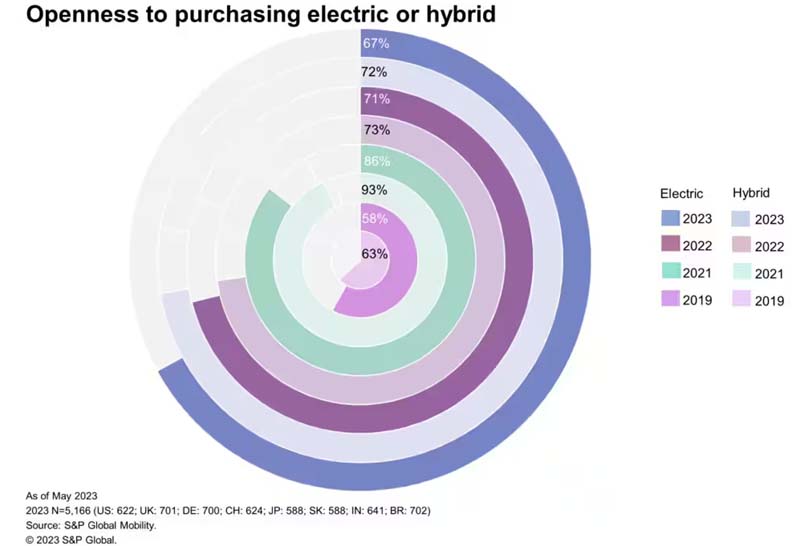While range anxiety and charging access are oft-cited barriers to EV adoption, a global survey by S&P Global Mobility reveals affordability has now emerged as the primary issue giving potential buyers pause.
Nearly half (48%) of respondents cited high pricing as their main hesitation toward purchasing an electric vehicle, even as they recognize EVs carry an inherent cost premium. This affordability concern persists across regions, despite significant EV uptake in some markets.
Per the 7,500 participant survey, improved range and model availability have helped alleviate those factors as adoption hurdles. But the higher sticker price of EVs compared to gas vehicles remains a stubborn challenge.
“Pricing is still very much the biggest barrier to electric vehicles,” noted Yanina Mills, senior research analyst at S&P Global Mobility.
Overall consumer sentiment toward Electric Vehicles adoption has cooled notably since 2021, indicative of an still-maturing technology. Only 42% now consider an EV for their next vehicle purchase compared to 86% in 2021.
Minimal model variety constrained interest, with luxury options dominating the fledgling EV market. But momentum built steadily as more affordable options like the BYD and Tesla debuted.
By 2021, enthusiasm spiked thanks to an influx of new models plus pro-EV policy shifts in the US and Europe. However, 2023 results reveal a 19 point drop in purchase consideration from just two years prior.
With EVs still a new concept to many drivers, most remain hesitant to adopt until perceiving the technology as truly ready for the mainstream. Ongoing concerns around charging and range likely compound sticker shock.
For automakers, the survey highlights the importance of introducing competitively priced, mass market EV options. Though profits may suffer initially, affordable options are critical to increase adoption and improve economies of scale.
Governments can also enact policies like rebates and tax credits to further defray upfront purchase costs. But bringing EVs in reach of the average car buyer will be key to accelerating global adoption.
Until EV sticker prices reach parity with gas vehicles, which may still take years, affordability barriers will persist even as range and charging hurdles fall, auto industry recognizes the crucial role affordability plays in unlocking mass adoption.
